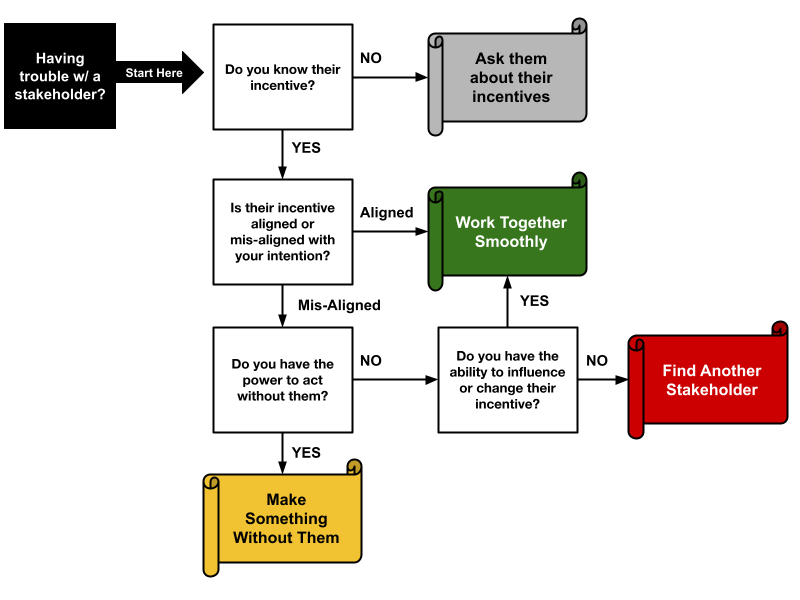communications

🧠 Distributed Cognition & Systems Thinking
In distributed systems (technical or cognitive), waiting for perfect information can lead to latency, deadlock, or missed opportunities . Systems often rely on local views and bounded rationality — making the best decision with what's available.
⚙️ SRE & Resilience Engineering
In incident response, teams... See more
In distributed systems (technical or cognitive), waiting for perfect information can lead to latency, deadlock, or missed opportunities . Systems often rely on local views and bounded rationality — making the best decision with what's available.
⚙️ SRE & Resilience Engineering
In incident response, teams... See more
Sign in to your account
To start to figure out your own incentive architecture, ask yourself the following line of questioning:
- What are you incentivized by?
- What decisions do you own or influence through that incentive?
- What are each of your stakeholders incentivized by?
- What decisions do they own or influence through that incentive?
- What incentives would the change you want
Abby Covert • Incentive Architecture before Information Architecture - Abby Covert, Information Architect
Incentive architecture is management work.
“ If they are the ones with the power, you can’t convince anyone to change what they are doing. Unless somehow you can change their incentive. “
Abby Covert • Incentive Architecture before Information Architecture - Abby Covert, Information Architect
“What if you need to convince someone to change?“
When your taste is ahead of your skill, you are not happy with the work you produce.
Stop a minute and think about it: all the times you are dissatisfied with your work, it just means that your taste for what is good is ahead of what you are able to create.
This conflict is good — in fact, it is what allows your skill to grow. You have a reference of... See more
Stop a minute and think about it: all the times you are dissatisfied with your work, it just means that your taste for what is good is ahead of what you are able to create.
This conflict is good — in fact, it is what allows your skill to grow. You have a reference of... See more
Luca Rossi • Taste vs Skills 🚣♂️ - by Luca Rossi - Refactoring Taste vs Skills 🚣♂️
Thanks to source: ???
Change introduces new form of failure. The low rate of overt accidents in reliable systems may encourage changes, especially the use of new technology, to decrease the number of low consequence but high frequency failures. These changes maybe actually create opportunities for new, low frequency but high consequence failures.
- Data is a compass not a map”
- “Vision and intuition help you identify the right mountain, data helps you get to the top.”
Bits and Bobs 5/19/25
When we want to impress, we often feel the urge to name every single thing we’ve done.
Every skill we have.
Every client we’ve ever worked with.
Anything we’ve attempted.
We think the more we add to the list, the greater our accomplishments will seem.
But more isn’t always better. Sometimes it’s actually worse. Why?
People judge us based on the average... See more
Every skill we have.
Every client we’ve ever worked with.
Anything we’ve attempted.
We think the more we add to the list, the greater our accomplishments will seem.
But more isn’t always better. Sometimes it’s actually worse. Why?
People judge us based on the average... See more
